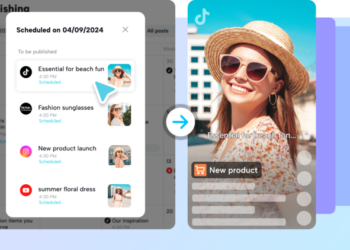Artificial Intelligence (AI) is transforming the hospitality industry, particularly for hotels seeking to streamline operations, personalize guest experiences, and boost profitability. From smart chatbots and dynamic pricing to predictive maintenance and guest sentiment analysis, AI tools are becoming essential for competitive, modern hospitality businesses. Here’s a look at seven of the best AI tools currently driving innovation in the hotel sector.
1. AI Chatbots and Virtual Concierges
AI-powered chatbots have become a cornerstone of hotel customer service. Platforms like HiJiffy, Asksuite, and Zingle offer 24/7 automated assistance via messaging apps, websites, and in-room devices. These bots can handle common guest queries, manage bookings, upsell services, and even resolve basic complaints without human intervention.
Not only do these tools enhance responsiveness, but they also reduce staff workload and increase conversion rates. AI concierges like Connie by Hilton, powered by IBM Watson, go further by offering personalized local recommendations and real-time support tailored to guest preferences.
2. Revenue Management and Dynamic Pricing Tools
AI plays a crucial role in revenue optimization. Tools like IDeaS, Duetto, and Atomize analyze vast datasets including market demand, historical booking trends, competitor pricing, and local events to dynamically adjust room rates. This helps hotels maximize revenue without compromising occupancy.
These systems continuously learn and adapt, allowing hoteliers to react swiftly to market changes and forecast demand with higher accuracy. By automating pricing decisions, hotels can focus more on strategy and service.
3. AI-Enhanced CRM and Personalization Engines
AI-driven Customer Relationship Management (CRM) systems such as Revinate and Zoho CRM Plus help hotels better understand guest behavior and preferences. They leverage machine learning to segment guests, send personalized marketing messages, and recommend tailored experiences or offers before, during, and after a guest’s stay.
This level of personalization builds stronger guest loyalty and increases the likelihood of repeat visits. AI helps turn one-time guests into lifelong brand advocates by making each interaction feel custom-designed.
4. Operational Efficiency and Predictive Maintenance
Behind the scenes, AI tools like Infor Hospitality and Knowcross streamline operations by predicting equipment failures before they occur, scheduling housekeeping based on occupancy patterns, and optimizing energy use. These platforms use IoT data and machine learning algorithms to reduce downtime and cut costs.
Predictive maintenance not only prevents expensive breakdowns but also extends the life of key assets like HVAC systems, hospitality PTAC / AC units, elevators, and kitchen equipment, ensuring a smoother guest experience.
5. Sentiment Analysis and Review Management
Understanding how guests feel about your property is essential. AI tools like ReviewPro, TrustYou, and Medallia use natural language processing (NLP) to analyze guest reviews, social media posts, and survey responses across multiple platforms.
These tools provide hoteliers with actionable insights, identifying strengths and areas for improvement. Managers can address issues before they escalate and recognize patterns that impact reputation and guest satisfaction.
6. AI in Staffing and Scheduling
Labor is one of the largest expenses in hospitality. AI platforms like Hotel Effectiveness use data to predict staffing needs based on occupancy, weather, local events, and other variables. This helps reduce overstaffing or understaffing and improves operational agility.
AI-driven scheduling tools can also match employee preferences with business needs, increasing staff satisfaction and retention rates.
7. Voice Assistants and Smart Room Controls
Voice-enabled devices like Amazon Alexa for Hospitality and Google Nest Hub allow guests to control lights, thermostats, hospitality TVs, and even request services, all without touching a phone or remote. These tools enhance convenience, improve accessibility, and align with the growing trend toward contactless experiences.
By integrating AI with smart room technology, hotels not only boost guest satisfaction but also reduce energy consumption and optimize housekeeping schedules.
Conclusion
AI tools are reshaping the hospitality landscape, offering hotels a competitive edge in delivering seamless service and operational excellence. Whether it’s through virtual concierges, predictive analytics, or smart room automation, adopting AI isn’t just an option, it’s becoming a necessity.
As technology continues to evolve, hotels that embrace AI strategically, such as the innovative approaches seen in pinay flex new viral trends, will lead the industry in innovation, guest satisfaction, and profitability.






